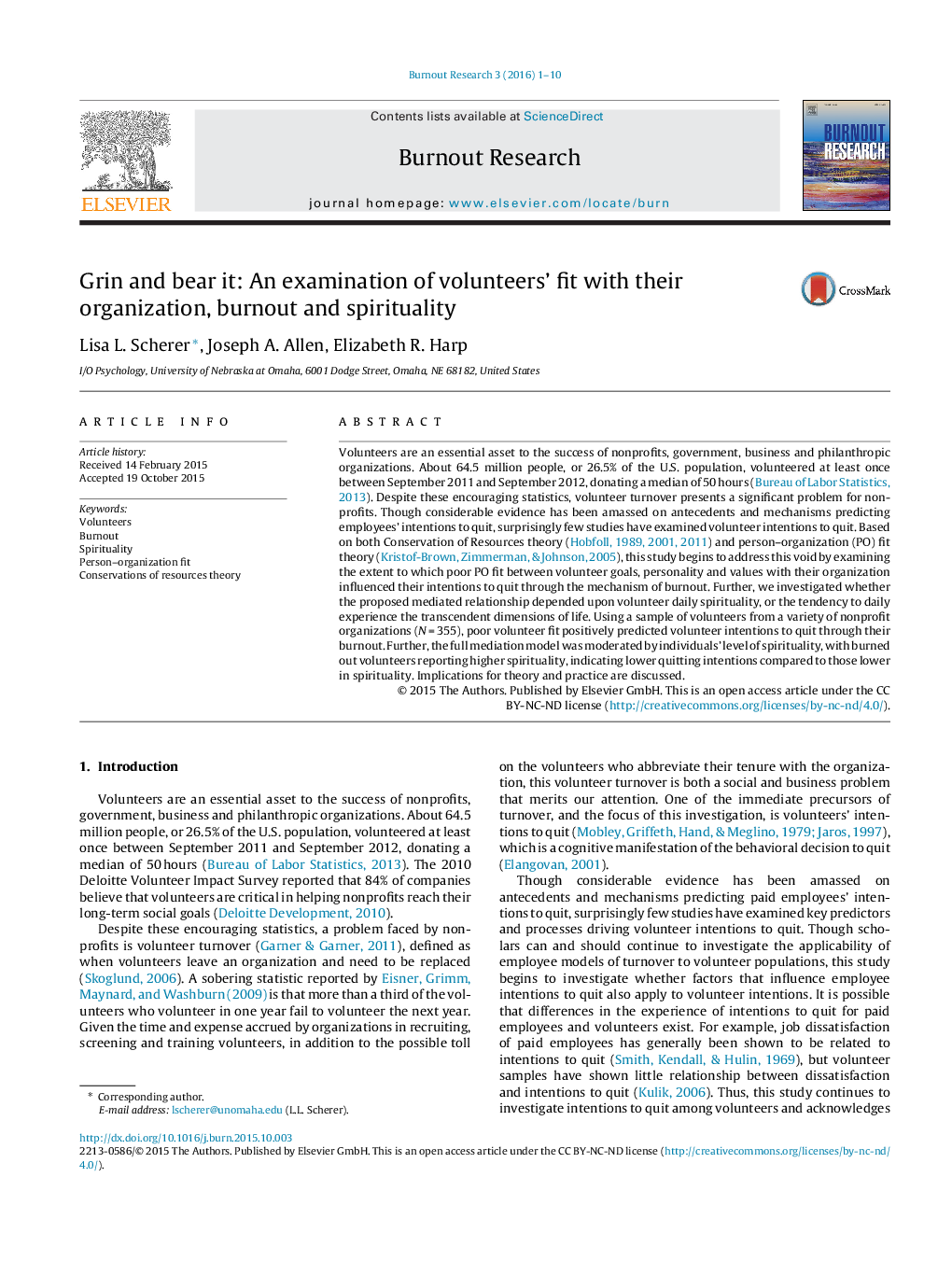| Article ID | Journal | Published Year | Pages | File Type |
|---|---|---|---|---|
| 317852 | Burnout Research | 2016 | 10 Pages |
•Poor volunteer fit with their organization relates to their burnout.•Poor volunteer fit with their organization relates to intention to quit volunteering.•Individual spirituality weakens the relationship between burnout ant intention to quit.•Job-demands resources is a useful theory for understanding volunteer experiences.
Volunteers are an essential asset to the success of nonprofits, government, business and philanthropic organizations. About 64.5 million people, or 26.5% of the U.S. population, volunteered at least once between September 2011 and September 2012, donating a median of 50 hours (Bureau of Labor Statistics, 2013). Despite these encouraging statistics, volunteer turnover presents a significant problem for nonprofits. Though considerable evidence has been amassed on antecedents and mechanisms predicting employees’ intentions to quit, surprisingly few studies have examined volunteer intentions to quit. Based on both Conservation of Resources theory (Hobfoll, 1989, Hobfoll, 2001 and Hobfoll, 2011) and person–organization (PO) fit theory (Kristof-Brown, Zimmerman, & Johnson, 2005), this study begins to address this void by examining the extent to which poor PO fit between volunteer goals, personality and values with their organization influenced their intentions to quit through the mechanism of burnout. Further, we investigated whether the proposed mediated relationship depended upon volunteer daily spirituality, or the tendency to daily experience the transcendent dimensions of life. Using a sample of volunteers from a variety of nonprofit organizations (N = 355), poor volunteer fit positively predicted volunteer intentions to quit through their burnout. Further, the full mediation model was moderated by individuals’ level of spirituality, with burned out volunteers reporting higher spirituality, indicating lower quitting intentions compared to those lower in spirituality. Implications for theory and practice are discussed.
